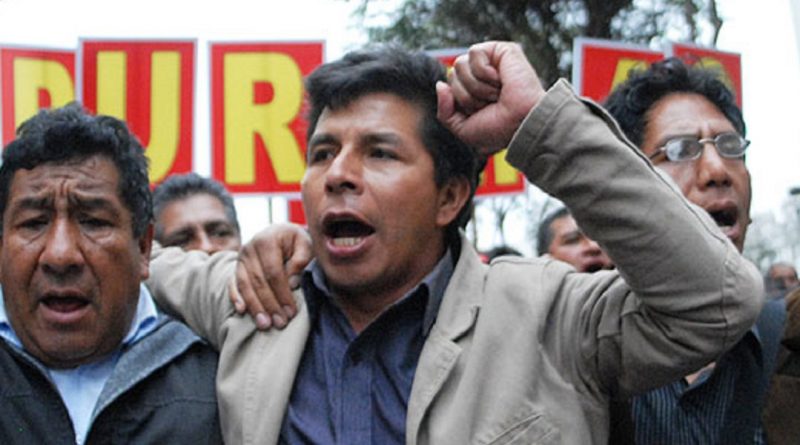RIO DE JANEIRO, BRAZIL – The far-left candidate Pedro Castillo is currently 11 points ahead of the authoritarian right-wing Keiko Fujimori, his rival in the second round of Peru’s presidential elections on June 6, according to a poll released this Sunday.
The poll, carried out by Ipsos and published by the local channel América Televisión, pointed out that when asked the question “if tomorrow were the second presidential round,” 42 % of those polled said they would vote for Castillo and 31 % for Fujimori.

Also, 16% stated they would leave their vote blank or annul it, while 11% did not specify their preference.
CASTILLO DOMINATES IN THE INTERIOR OF THE COUNTRY
Results differ in parts of the country. In Lima, Fujimori received 43% of the stated preferences and Castillo 26%. In the country’s interior, however, support for Castillo reaches 51%, and for Fujimori 24%.
The survey details the great support received by Castillo, candidate of the Peru Libre party, in the country’s interior, where he has 47% support in urban areas and 60% in rural areas. Fujimori, the Popular Force party candidate, receives 26% support in the urban interior and 20% in rural areas.
By regions, Castillo also shows solid support, with 41% in the north, 68 % in the center, 58% in the south, and 45% in the eastern Amazon.
On the other hand, Fujimori is supported by 30% in the north, 22% in the center, 17% in the south, and 29% in the east.
The Ipsos poll, which was carried out between April 15 and 16 among 1,204 people and had a margin of error of +/- 2.8%, added that 67% of those polled have already decided their vote, 29% are not yet “informed enough to decide,” and 4% do not specify their position.
AN IMPORTANT GAP
Commenting on the poll results, the director of Ipsos, Alfredo Torres, affirmed that although there are seven weeks before the second round of the elections, “it is true that it is an important gap because on other occasions there has not been such a difference.”
“Keiko Fujimori has an uphill struggle if she wants to turn the game around; she has started with the score against her,” Torres commented before reiterating that “we must be cautious,” but it must be recognized “that the gap is wide.”
“All this could change in the course of other weeks,” he said after commenting that the poll was taken before Nobel Prize-winning writer Mario Vargas Llosa asked his compatriots to vote for Fujimori on Saturday, considering her “the lesser evil” in the face of Castillo’s ultra-left tendency.
Torres added the writer’s position “could have some influence in some sector of the electorate.” However, the upper and middle classes of the country “are more in favor of Keiko Fujimori,” and the economically lower classes are opting for Castillo.
“Castillo’s advance is no longer limited to the Andean zones, but also other regions, such as the north of the country, that is a novelty,” he added.
Torres also said that a third of the citizens “could still lean towards one or the other” candidate and that this poll “is a first snapshot of how this campaign for the second round begins” after the general elections of April 11, which determined the runoff between Castillo and Fujimori.
CASTILLO THANKS SUPPORTERS
After learning of the poll, Castillo released a video message in which he thanked “deeply for the support” of the population and offered that “with this same temper, with this same loyalty towards the people,” he will conduct himself in the second round.
“We are not in agreement with having a campaign with attacks, with low blows, on our part they will not have it; we believe it is important that in this scenario we have to work and propose the great proposals of the country politically,” he said.
The candidate added that if he becomes head of state, his government will be “respectful” of the current Constitution, which he proposes to change, “until the people decide it in a referendum until this will emanate from the people.”
“No more poor people in a rich country,” he concluded.

